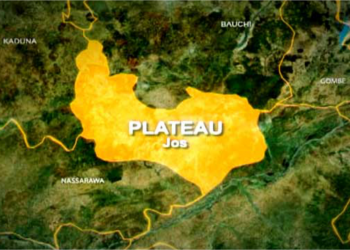A Mass Communication Scholar, Mrs. Patience Achakpa-Ikyo has attributed the unending clashes between herders and farmers in the country, particularly in Benue, to the widespread of fake news on the social media.
Achakpa-Ikyo, who works with the department of Mass Communication, Benue State University (BSU), stated this in a chat with our correspondent in Makurdi maintaining that most of the news on the clashes being reported by non conventional media and by untrained persons accounts for the lingering crisis.
She said unless government puts machineries in place to regulate the activities of these non professionals on the internet, especially on the whatsapp, facebook among others, fake news will continue to cause tensions among the people.
According to her, “most of what has been going out as news to the public in Nigeria and outside the country concerning what is happening in Benue state, to be precise, has been fake news. I am not saying that there was no crisis. There were and the crises were also very bad, but sometimes, you hear news about a particular clan that has been attacked and people are no longer there and if you are opportune to speak to someone from that clan, you discover that people are still living in such areas.
“I can recall that during one of the attacks in Logo, I heard that herders had attacked and sent all farmers away from that area and because my mum is from that axis, I became worried and when I called, she said yes they were not at home but not because they were driven away but because of the fear of the unknown, adding that they were still at home and going to the farm. During this last Christmas, when I went to the community, there was no evidence that they left and came back.”
Mrs. Achakpa-Ikyo who noted that most of the fake news instill fear and spread hatred among the people said “most times, it is not the entire place that was under attack. Yes, something is happening in Benue and it has been very bad too but a lot of it is exaggerated.”
Asked how fake news can be curbed, the University scholar noted that curbing fake news will be hard because the internet is the spring board on which it has been growing saying “it will continue to grow so far the internet is still there.
READ ALSO: Ataga Kidnap : Police Arrest 34-year Old Teacher For Spreading Fake News
“The problem is everybody publishes and if they have the right to publish, you are not going out there to train everybody that uses the internet on what to do.”
She advocated for continuous training and retraining of professionals and those in the traditional media to enable them detect and avoid fake news by following the right process of news gathering and news publishing. “If this is done, it would now be left for the general public to choose which to believe; the news on the traditional media or the one on the internet, the social media especially.
She further advised members of the public to know the source of information before they pass it on so that they don’t regret passing on what is fake news just as she warned the people to be very careful about the information that are passed through the Whatsapp.
“You find a message on Whatsapp that is so touching that you want to do something, and you are trying to alert your family and friends but that will scare them. Sometimes, it is a message that is two years old but it is going on and on because of forwarding and fowarding. So, identify your source of information before you act or forward to your family members.”
She also urged professionals to exercise caution during their news gathering to ensure they do not dish out any form of fake news to their audience.
Also speaking, a peace builder and social commentator, Mr Austin Onuoha said for the sake of peace, all hands must be on deck and journalists have a duty to ensure that what they dish out to the public as news is not only the truth but also factual.











